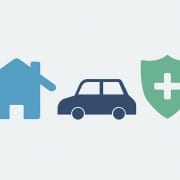Whether man-made or natural, floods are some of the biggest and most destructive forces of nature known to mankind. According to WHO, up to 90% of all documented natural disasters have resulted from floods, cyclones, and severe storms over the last decade.
As floods continue to increase in intensity and frequency, it is time to ensure the safety of your home, business, vehicles, and other belongings. Flood insurance was built to do just that.
The sheer number of flood insurance claims made in the US shows that Americans know how important it is to have one. Research shows that in 2017, there were more than 227,000 claims valued at $10.3 billion.










